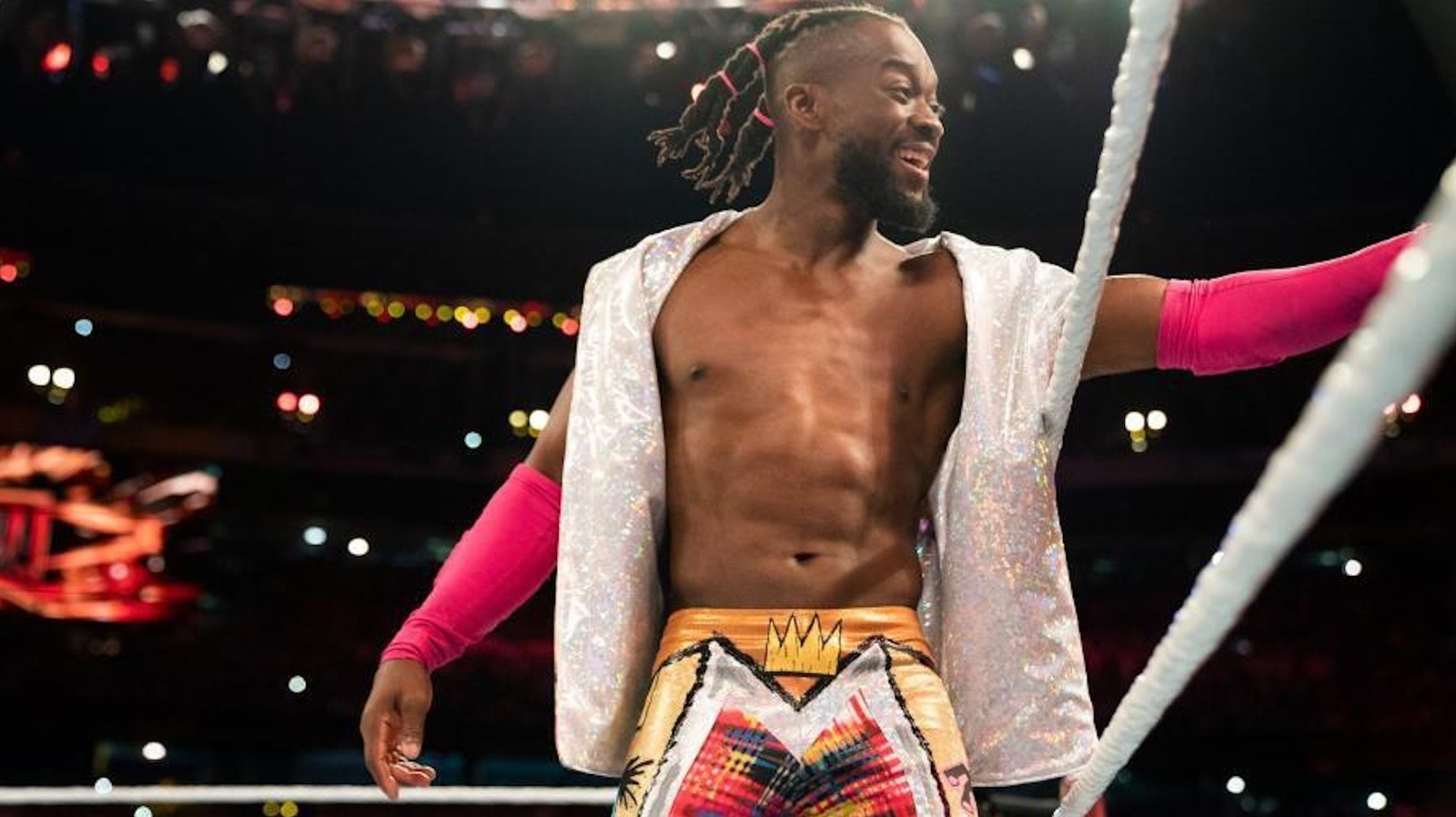Why Kofi Kingston Thinks He ‘Broke The Mold’ In WWE: Defying the ‘Prototypical’ Superstar Stereotype
In a recent candid chat that’s reigniting nostalgia for KofiMania, WWE’s enduring powerhouse Kofi Kingston opened up about his trailblazing path, declaring he “broke the mold” by shattering the rigid blueprint of what a top-tier wrestler “should” look like. Far from the towering, muscle-bound behemoths dominating early WWE rosters, Kingston—born in Ghana and standing at a lean 6’0″—carved his legacy through sheer grit, charisma, and a refusal to fit the mold, turning underdog odds into a WWE Championship reign that still echoes six years later.
The revelation dropped during Kingston’s appearance on Konnan’s “Keepin’ It 100” podcast, where the 44-year-old reflected on his 2019 homecoming to Ghana as the freshly crowned WWE Champion. Fresh off dethroning Daniel Bryan at WrestleMania 35 in a fan-fueled frenzy, Kingston stood before crowds who saw him not as the Jamaican-accented high-flyer he’d debuted as in 2008, but as a symbol of possibility. “I’m not like your prototypical wrestler,” he admitted, chuckling at the irony. That moment crystallized his journey: from a Boston College finance grad ditching a corporate cubicle for indie rings in 2006, to signing with WWE’s developmental system as Kofi Nahaje Kingston, embodying a Caribbean flair despite zero island ties.
What fueled the “mold-breaking”? Kingston pinpointed the industry’s unspoken archetype—a wrestler over 6’5″, chiseled like a Greek statue, and an athletic freak capable of suplexing foes twice his size. “You get, like, a little bit of a chip on your shoulder and going out there and breaking the mold,” he shared, his voice laced with that signature positivity that powers The New Day. That defiance wasn’t just personal; it was motivational rocket fuel. Scoffing at the “jacked to the gills” ideal, Kingston leaned into his strengths: explosive aerials like the Trouble in Paradise kick, infectious energy, and a knack for those gravity-defying Royal Rumble saves that became his calling card—hurling himself over the barricade, clinging to broadcasters, even skinning the cat on the apron.
His ascent defied the odds further through reinvention. Debuting as the smiling Jamaican underdog on ECW, he snagged the Intercontinental Championship from Chris Jericho in 2008 and tag gold alongside CM Punk. But it was The New Day—formed in 2014 with Xavier Woods and Big E—that truly shattered stereotypes. Pitched as disgruntled everymen but morphed by Vince McMahon into gospel preachers (a concept they nixed on sight), the trio flipped the script with unicorn horns, Booty-O’s cereal promos, and twerking antics. “We came out with bright colors, pitching ice cream, pancakes… stuff that is funny—stuff that you would do with your boys,” Kingston explained, emphasizing how it subverted the “stereotypical African-American guy” trope in wrestling. Fans ate it up, turning heels into heroes and birthing a 1,000+ day tag title reign, multiple Slammys, and Kingston’s solo WrestleMania miracle.
Experts and peers echo his impact. Wrestling journalist Bryan Alvarez, on F4WOnline, called Kingston’s run “the ultimate feel-good arc,” noting how KofiMania’s organic 11-match gauntlet to the title exposed WWE’s evolving openness to non-traditional stars. Woods, his New Day brother, tweeted post-podcast: “Kofi didn’t just break the mold—he remade it with positivity and pancakes. Proud AF.” Even Vince Russo, ever the provocateur, admitted on his show that Kingston’s charm “proved size ain’t everything—heart sells tickets.”
For U.S. fans, Kingston’s mold-breaking resonates beyond the ring. As the first African-born WWE Champion, his story mirrors immigrant hustle in a nation of 47 million Black Americans, inspiring youth programs like WWE’s Next Hero where kids from diverse backgrounds learn resilience. Economically, KofiMania boosted SmackDown viewership 20% in Q1 2019, per Nielsen, funneling millions into merchandise and live events that sustain 800+ WWE jobs. Politically, it spotlights diversity in sports entertainment, aligning with Title IX-era pushes for inclusive athletics amid 2025’s culture clashes. Lifestyle-wise, his “power of positivity” mantra—tattooed on his arm—fuels family routines: Pancake Fridays in Kingston’s Atlanta home echo New Day antics, while his high school wrestling tales (expecting WWE flair, getting Olympic grapples) remind dads coaching peewee leagues that passion trumps physique.
Tech ties? Kingston’s savvy use of social media—amassing 2.5 million Instagram followers with behind-the-scenes vlogs—paved the way for WWE’s TikTok era, where AR filters recreate his Rumble escapes. Sports crossovers abound: His underdog vibe parallels NBA’s Jokic, proving “non-prototypical” builds win rings (or belts).
As Kingston eyes Hall of Fame enshrinement and a potential singles resurgence alongside The New Day’s heel turn, his “broke the mold” ethos endures. “Being the first African-born champion [is] wild… I was just a kid who liked wrestling,” he marveled. In a WWE landscape now boasting stars like LA Knight (5’10”) and Ricochet (5’9″), Kofi’s chip-on-shoulder spark lit the fuse. Future? With rumors of a New Day movie in development, expect more mold-shattering magic—proving once a trailblazer, always the blueprint.
By Mark Smith
Follow and subscribe for WWE deep dives and underdog tales—enable push notifications to catch every Kofi kick!
